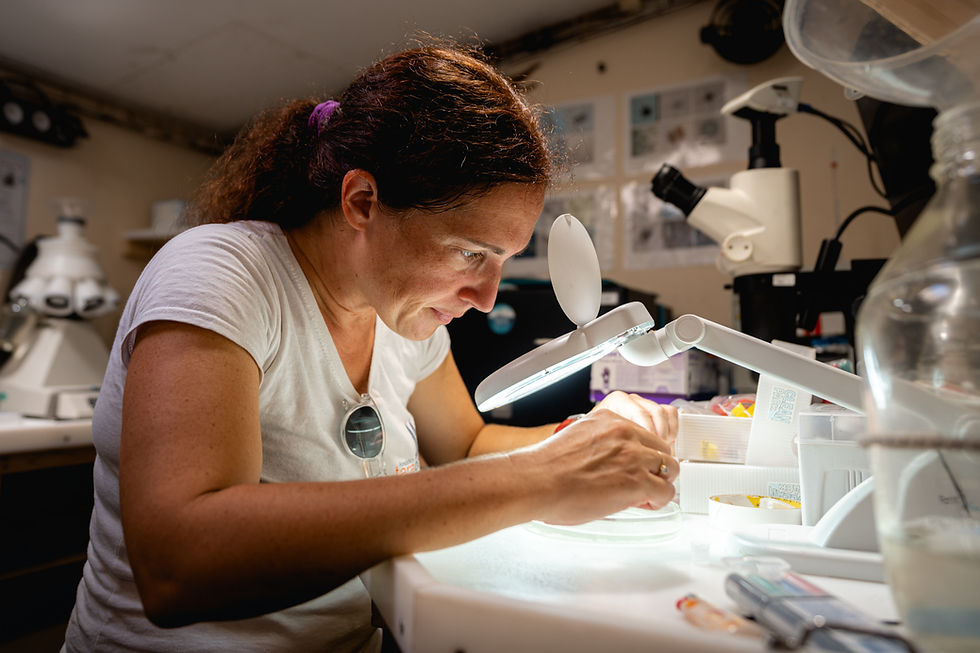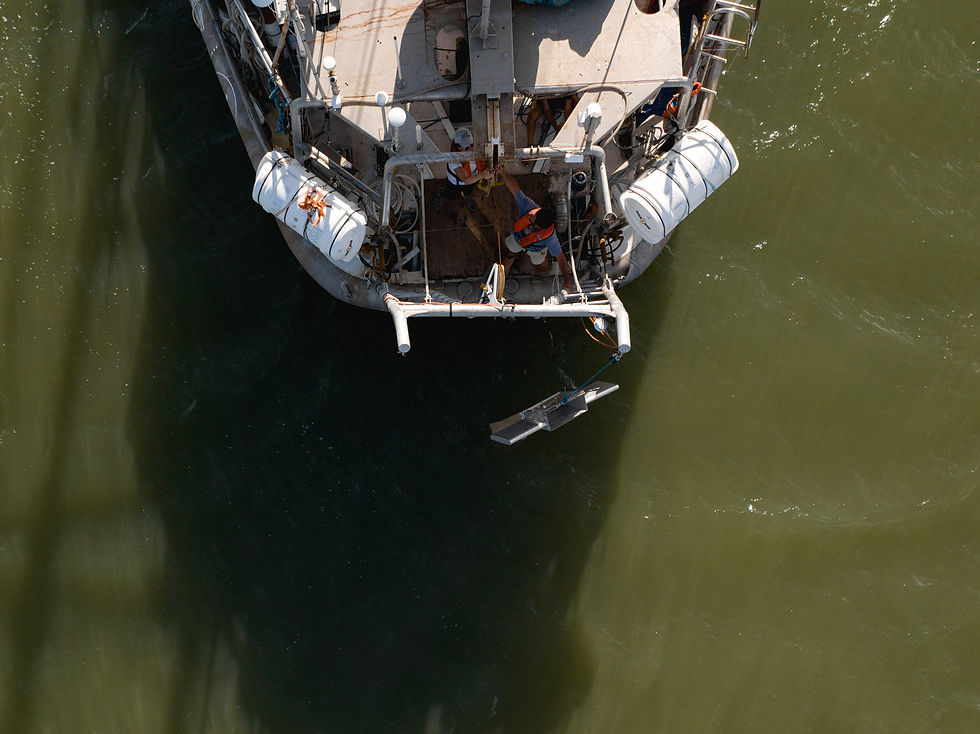Following plastics from land to sea on the Casamance river in Senegal
- AtlantECO

- Mar 29, 2023
- 2 min read
Updated: Apr 3, 2023

In episode 39 of the AtlantECO Podcast, Leïla Meistertzheim, a researcher from Banyuls-sur-Mer with expertise in toxicology and microbiology, who was chief scientist of the last topic study of the Mission Microbiomes Expedition in Senegal, discusses the importance of studying the Casamance River.
The goal of that study was to trace the origin of plastic pollution in the ocean, and to understand the flow of plastic from the land to the sea.

The Casamance River was an ideal environment for this study as it is a mangrove environment, a hotspot of biodiversity, and has different types of human activities that can impact the environment. The team used a manta net and different types of filters to increase the quantity of DNA, enabling them to identify the microorganisms living in the surrounding environment and the plastisphere, the life that develops on plastics. The study will help increase knowledge of the exact number and different types of plastic pollution found in the river, and how they can be affected by UV radiation and hydrometry. The ultimate goal is to understand the mutual impact of plastic on biodiversity and marine ecosystems, and to share this knowledge with local people so they understand the impact of plastic not only in the river but also in the sea.

During the study, the team encountered unexpected challenges with sampling methods. Due to the river's size, at first, they were able to enter directly on Tara but had to resort to renting a car and transporting equipment themselves to sample further up the river. They were able to obtain help from locals, and their interactions were mutually beneficial as the researchers and the community exchanged about microplastics in the environment. The researchers found a significant amount of plastic waste near a small population on the riverbank, which highlights the impact of single-use plastic on the environment. The locals understood the problem and were keen to find solutions, but it was not easy in their part of the world. Overall, the experience was rewarding and educational for both the researchers and the locals.

The leg was dedicated to Tracy Edwards who has played a significant role in supporting women in the sailing world. Edwards created the first all-women crew 30 years ago to compete in the Whitbread Round the World Yacht Race, and her story was turned into the movie Maiden, after the boat she raced with.
Leïla shares her positive experience on board Tara and she emphasises on the importance of working together as a team to achieve the common goal, in what can be challenging conditions. As we had heard in previous stories of the Mission Microbiomes, this message of teamwork and shared passion is common among those who have been on board Tara.





Comments